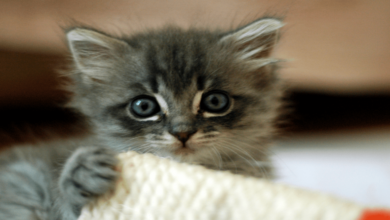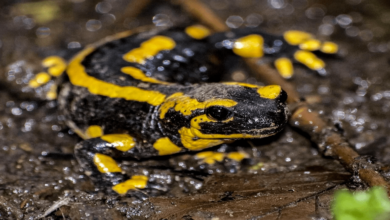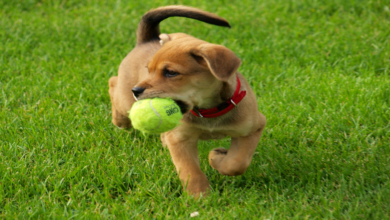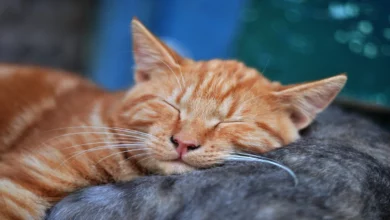Can cats eat dragon fruit? Find out now!
Find out if your cat can eat dragon fruit and which fruits your pet can eat!
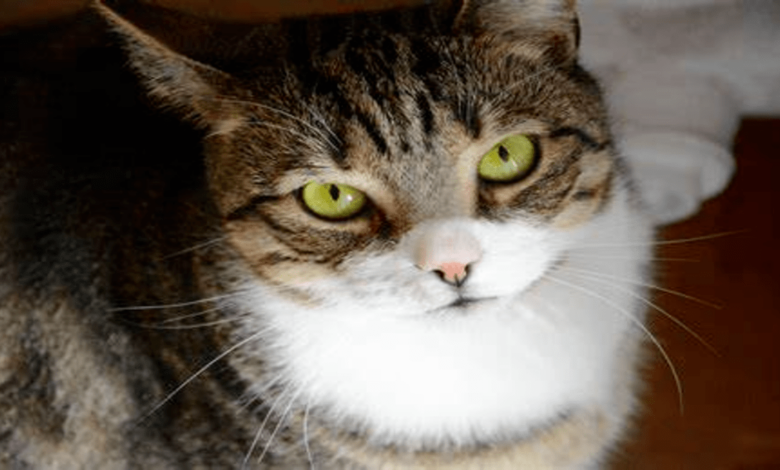
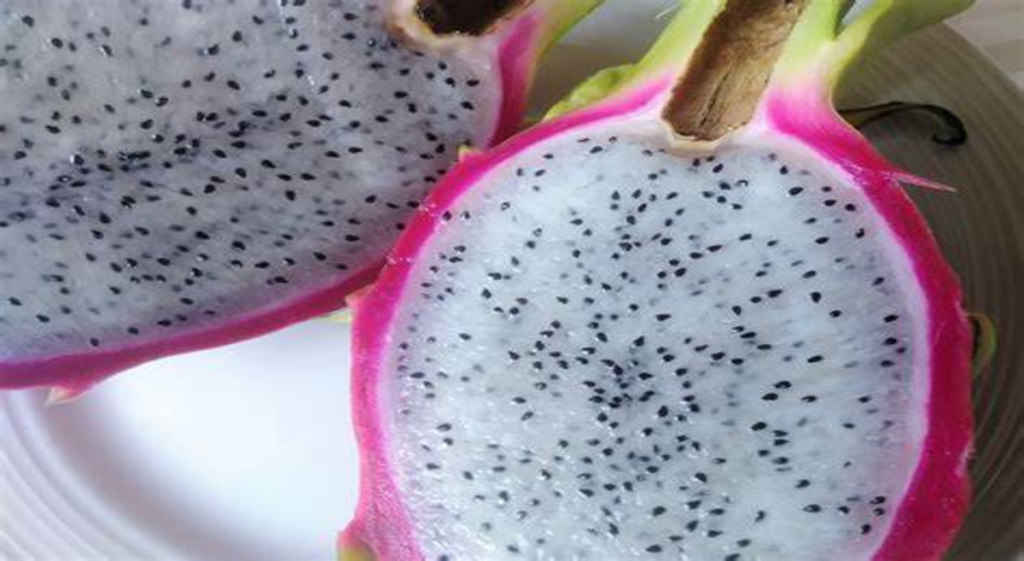
Also widely known as pitaya or strawberry pear, dragon fruit is a very delicious fruit that grows on the Hylocereus cactus. Most popular in Southeast Asia, this fruit has grown in popularity in recent years. You have probably noticed that during the summer, pitaia-flavored drinks or infusions appear almost everywhere. You will still often find them at a farmers’ market or in grocery stores during the summer.
As a cat owner, you need to be well aware of what types of human foods may pose some potential risk to your beloved pet. So where is the delicious dragon fruit in terms of safety? The great news is that this dragon fruit is not toxic to cats, but what if it was healthy for them? Not so much for carnivores like cats. Well, I’ll talk more about that below.
What is a dragon fruit?
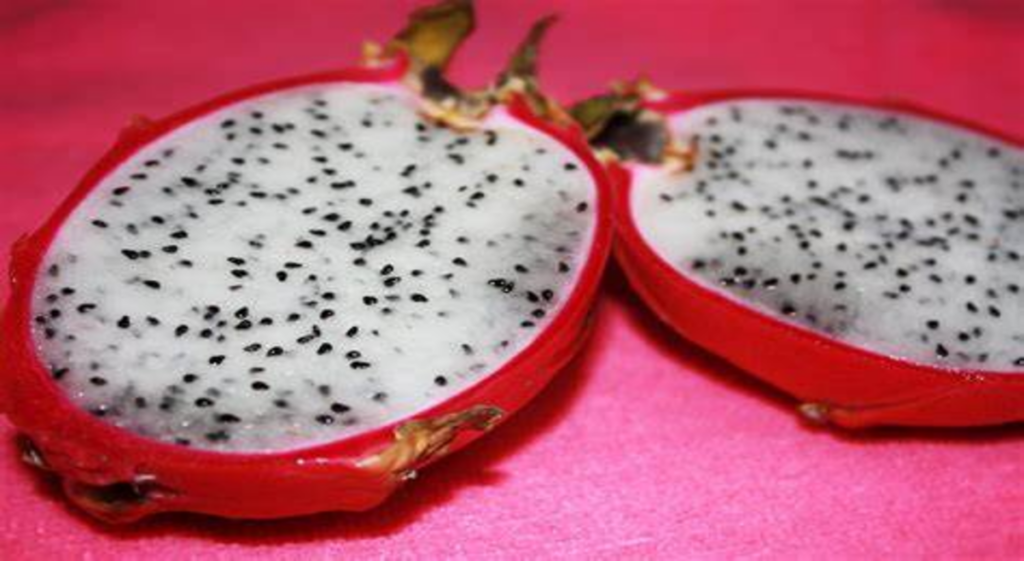
This fruit is a tropical delicacy native to southern Mexico and also Central America. The fruit grows on a Hylocereus cactus, a climbing cactus found in the tropics. This fruit has a very unique appearance. In its rich pink oval shape, it has green scales, and if you cut into it you can see its white flesh, which is filled with little black seeds.
Dragon fruit, which also goes by the names pitaya, pear strawberry and pitahaya . The name derives from the green scales and also the bright pink skin that resembles a dragon. This fruit has a very mild flavor and is now grown all over the world. It is a must for various refreshing summer drinks or in a nice and also slightly sweet fruit snack.
What are the health benefits of dragon fruit
Dragon fruit has a full list of health benefits for you, but of course what is healthy for humans is not always healthy for our pets.
The health benefits for humans
- May Help Lower Blood Sugar
- Prebiotics
- Rich in antioxidants
- High in fiber
- Immune Support
- Rich in Vitamin C
- Increases Iron Levels
Dragon fruit and cats
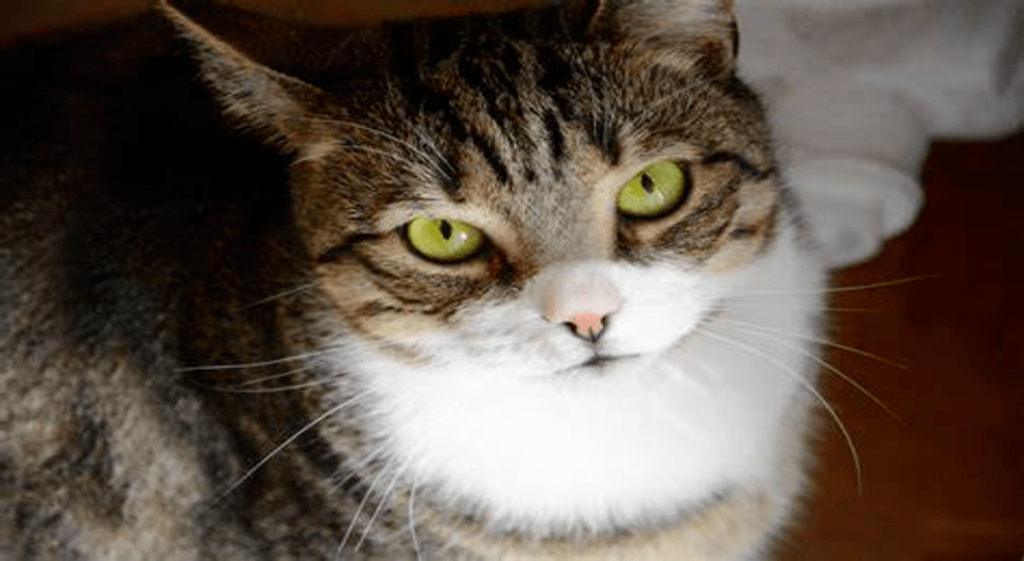
As mentioned earlier, dragon fruit is not a toxic fruit for cats and will not harm them if they eat it. The fruit may be a bit overwhelming to their digestive system. Therefore, when large quantities of the pitaia are ingested, it is not uncommon for them to experience gastrointestinal discomfort among other symptoms.
Dragon fruit can be very nutrient dense and also full of health benefits, but like obligate carnivores, cats are unable to properly digest the fruit and absorb the nutrients the way a human can. Cats get all the nutrients they need directly from meat sources, and therefore do not need to supplement their diets with pitaia.
Can cats eat other fruits?
Some fruits and also other human foods are perfectly safe for cats to eat, while others are not. While you should definitely avoid toxic foods, even safe and also non-toxic fruits can still cause gastrointestinal discomfort, because fruits are usually quite high in sugar and are not a normal part of cat food.
And as a general rule, you should not feed fresh fruit to your cat, as it is not nutritionally necessary. You need to be aware of which fruits can harm your cat if they are eaten.
Some fruits that are safe for cats
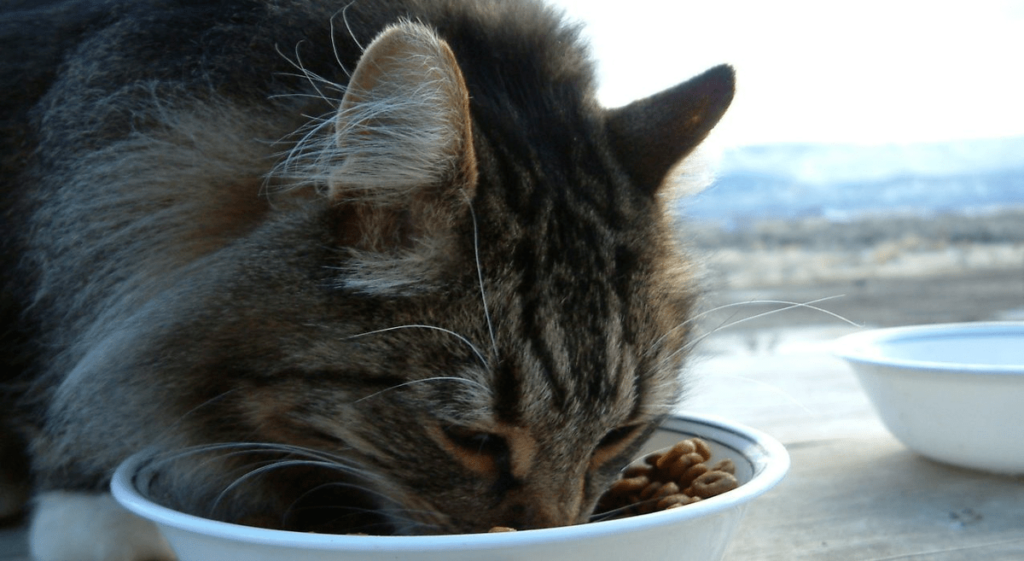
Keep in mind that even non-toxic fruits can cause digestive problems in your cat if consumed in large quantities. These can include symptoms such as nausea among several others. The following fruits are considered safer when they are eaten in small quantities:
- Cantaloupe
- Cucumber
- Cranberries
- Apples (no seeds or stem)
- Apricots (no pits, seeds or stem)
- Banana
- Blackberries
- Mulberries
- Nectarines
- Pear (without stone, seed or stem)
- Pineapple
- Raspberries
- Honeydew
- Mango
- Nectarines
- Strawberries
- Watermelon (seedless)
Some fruits that are not safe for cats
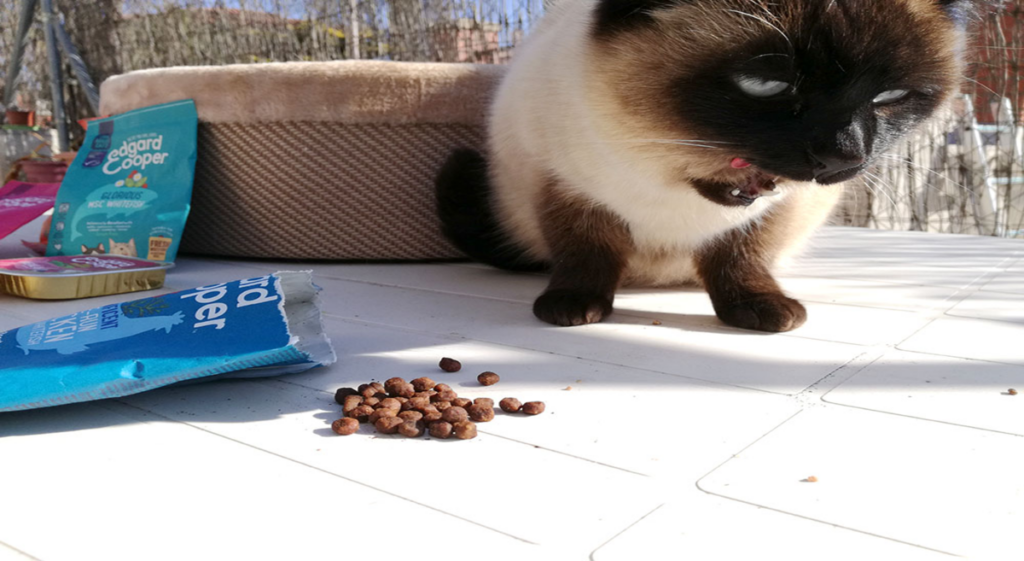
Now for the poisonous fruits. If your cat eats any of the following fruits from the list, you should contact your veterinarian immediately for further guidance. It is also quite important to be aware of the symptoms of poisoning so that you can more easily identify possible poisoning, even if you didn’t see what your cat ate.
- Grapes
- Orange
- Raisins
- Lemon
- Lime
- Mostly seeds, stones, stems, bark, and also roots
Tips for keeping your cat’s diet balanced
To ensure that your cat is getting a well-balanced and high-quality diet, you should feed it a food that is appropriate for its size, age, activity level, and specific nutritional needs. Although commercial cat food on the market is made to meet all of a cat’s nutritional needs, not all foods are made equal.
It is very important to learn to read food labels and to check the list of ingredients before you do so. You must decide on a particular food. In the wild, cats get most of their moisture from their prey, so they thrive on diets that are rich in moisture. It is very important to ensure that they have access to fresh and clean water at all times. If you have questions about the diet for your cat, talk to your veterinarian.
Varieties of cat food
There is no shortage of cat food recipe options on the market today. In fact, it can be even a little difficult for you to choose from the long list of brands, the types of food and recipes. Below is a list of some of the most common types of cat food:
- Fresh food
- Freeze-dried cat food
- Dry croquettes
- Moist cat food (canned)
- Semi-moist cat food
Healthy snacks for cats
In fact, there is nothing wrong with occasionally offering your cat a snack. You should do it in moderation so that you avoid obesity. Here is a list of some of the snack options that are healthiest for your pet:
- Bits of croquettes
- Pieces of wet food
- Lean, cooked, unsalted meats (small amounts)
- Dried liver (small amounts)
- High quality commercial candy
To finish
Cats can eat the pitaia without the risk of toxicity, but it can cause indigestion if consumed in larger quantities. The pitaia and also other fruits have no place in your cat’s diet, as they are obligate carnivores, deriving their nutritional needs from meat.
You should be sure to speak to your veterinarian before making any changes to your pet’s diet or supplementation regimen, and contact him if your cat is exhibiting any unusual symptoms or if you know he has eaten a toxic food. However, the best way to avoid these problems is to keep all human foods well out of the cats’ reach at all times.


